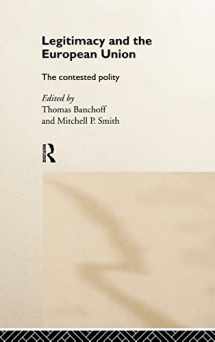
Legitimacy and the European Union: The Contested Polity
Book details
Summary
Description
Since the Maastricht ratification debate of the early 1990s, the legitimacy of the European Union has become a subject of controversy. With unprecedented force, Europeans have begun to question the need for deeper integration. Some fear threats to established national identities, while others perceive the emergence of a distant but powerful Brussels, beyond the reach of democratic control. Legitimacy and the European Union breaks with established approaches to the problem of the legitimacy of the European Union by focusing on the recent trend towards reconceptualization of the EU not as a superstate or an organization of states, but as a multi-level, contested polity without precedent. The book examines the implications of this reconceptualization for the problem of legitimacy. Individual chapters focus on policy areas, institutions and identity politics. Taken together, they reach two main conclusions. While Europeans do not strongly identify with the EU, they increasingly recognize it as a framework for politics alongside existing national and subnational structures. And while the EU lacks central democratic institutions, the integration process has spawned significant informal and pluralist forms of representation. Rethinking recognition and representation ouside the context of the nation state points to important, if little understood, actual and potential sources of EU legitimacy.


We would LOVE it if you could help us and other readers by reviewing the book
Book review



